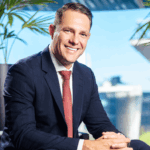The two-pot system is the most recent evolution in the financial planning landscape. Anecdotal evidence suggests that there has been a rush from retirement fund members to access one of those pots. Does that mean individual retirement plans are going to be compromised going forward?
At a recent Fundhouse conference, Roger Kuo, president of US-based global fund manager, Dodge & Cox, shared how they have used AI to develop their research systems. Recently they were considering buying a retail stock and were able to get a report on the dynamics of the global retail market from their AI-driven research system in a matter of seconds. This is something that previously would’ve taken a team of analysts months to prepare and it prompts the question, does this mean the future of human involvement in fundamental investment analysis is under threat?
The Dodge & Cox investment team were freed up to spend more time on deliberating over their investment decision, rather than using much of that time accessing and collating information which now could be done in seconds. AI clearly has a role to play in investment management. What of financial planning?
With every evolution, a question gets raised about the future. What will things look like in three years, five years or 10 years? How will things be different? It makes sense to ponder this question, but is it the right question to be asking? Jeff Bezos thinks not. He says he regularly gets asked what will change in the next 10 years? But he says if you want to prepare yourself for the future, this is the wrong question to ask. A better question is, “What will not change in the next 10 years?” If one can answer that question, then it is possible to prepare oneself for the future.
As we ponder the future is already now.
Bezos says, in Amazon’s world there are probably three things that won’t change: people want to buy good-quality products, at a reasonable price, and have them delivered to their destination of choice. Knowing this, Bezos and his operations team can focus on delivering these three elements to customers. How they do this may change. Drones are already replacing courier vans. But the three essentials of quality product, good price and delivered to place are unlikely to change. As Naseem Talib says, “Invest in preparedness, not prediction.”
What won’t change in financial planning in the next 10 years? What can we prepare for, rather than try to predict? Given that financial planning is about working with people and their money, the obvious question to ask is, what won’t change when it comes to people and money? Let’s start with money. The rise of cryptocurrency suggests that the form of money is likely to change. We can’t predict if paper and coins will be around in 10 years, but it is probably safe to say money as a medium of exchange will still be around. It is unlikely that we will return to the barter system in the next 10 years. What of people?
Optimistically, people will still be the clients of financial planners. This, despite the perspective that there is the potential for an increasing convergence between humans and machines in the future. Elon Musk apparently wants humans to merge with AI “to achieve a symbiosis with artificial intelligence”.
Musk’s company Neuralink is trying to facilitate this convergence to ensure that humans don’t get “left behind” as technology advances in the future. This convergence offers potential benefits for people with disabilities, but there is no reason why they could not be used to enhance abilities in everyone. Transhumanists want to use science and technology to enhance human capabilities and end disease, aging and death. If this happens, the nature of financial planning would change fundamentally.

But if human beings are clients of financial planners for at least the next 10 years, how can we “invest in preparedness”? People’s behaviour with money now gives us a clue. The rush to access money from one of the two pots is the latest example of potentially self-sabotaging financial behaviour by humans. This even though the menu for good money behaviour is short. Spend less than you earn. Save for a rainy day. Invest for your future. Protect yourself against unexpected risks. Pay your tax. Have a will. Similarly, the menu to be physically healthy is short. Eat well. Exercise regularly. Get enough sleep. Limit stress. Yet globally we have an obesity and diabetes crisis.
As we ponder the future, the future is already now. How we behave with money is problematic. It is no surprise that money is the leading cause of household stress and relational conflict. We need financial planners who can help humans with their behaviour, not just their money. This need won’t change. Which means advanced human skills are the superpower of the financial planner. Now and in the future.










